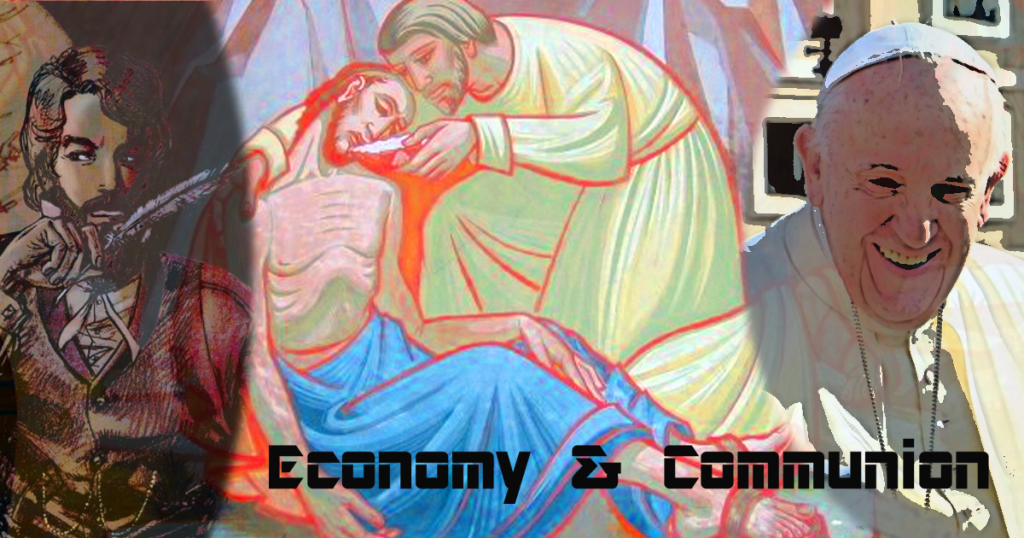Speaking to participants of a meeting to mark the 25th anniversary of the founding of Economy of Communion, Pope Francis echoes Frederic Ozanam.
 Over 175 years ago Frederic Ozanam wrote “Charity is the Samaritan who pours oil on the wounds of the traveler who has been attacked. It is Justice’s role to prevent the attack.”
Over 175 years ago Frederic Ozanam wrote “Charity is the Samaritan who pours oil on the wounds of the traveler who has been attacked. It is Justice’s role to prevent the attack.”
On February 4, 2017 Pope Francis echoes the words of Fredric, “We must work toward changing the rules of the game of the socio-economic system, imitating the Good Samaritan of the Gospel is not enough.”
His words in context…
The economy of communion, if it wants to be faithful to its charism, must not only care for the victims, but build a system where there are ever fewer victims, where, possibly, there may no longer be any. As long as the economy still produces one victim and there is still a single discarded person, communion has not yet been realized; the celebration of universal fraternity is not full.
Therefore, we must work toward changing the rules of the game of the socio-economic system. Imitating the Good Samaritan of the Gospel is not enough. Of course, when an entrepreneur or any person happens upon a victim, he or she is called to take care of the victim and, perhaps like the Good Samaritan, also to enlist the fraternal action of the market (the innkeeper).
I know that you have sought to do so for 25 years. But it is important to act above all before the man comes across the robbers, by battling the frameworks of sin that produce robbers and victims. An entrepreneur who is only a Good Samaritan does half of his duty: he takes care of today’s victims, but does not curtail those of tomorrow.
For communion one must imitate the merciful Father of the parable of the Prodigal Son and wait at home for the children, workers and coworkers who have done wrong, and there embrace them and celebrate with and for them — and not be impeded by the meritocracy invoked by the older son and by many who deny mercy in the name of merit. An entrepreneur of communion is called to do everything possible so that even those who do wrong and leave home can hope for work and for dignified earnings, and not wind up eating with the swine. No son, no man, not even the most rebellious, deserves acorns.
“The principal ethical dilemma of this capitalism is the creation of discarded people, then trying to hide them or make sure they are never seen,” – the Pope continued – “A serious form of poverty in a civilization is when it is no longer able to see its poor, who are first discarded and then hidden.”
Pope Francis said the Economy of Communion, if it wants to be faithful to its charism, must not only take care of the victims, but also build a system where the victims are fewer and fewer, until maybe there are no longer any.







0 Comments